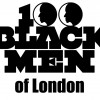
As a mentor and VP Programmes for a charity, 100 Black Men of London, that provides a free Community Mentoring Programme for black youths in London I am fortunate enough to see on a regular basis the enormous potential that is out there in our community.
At the same time I am equally frustrated to see, read and hear how much of that potential goes unsupported, misdirected, unharnessed and unfulfilled. So should we ask the question “why” or “who is to blame” or should we be taking a more positive position and simply ask “what can I or we do about it”?
Young people in general are facing a number of challenges today: getting a good standard of education; employment prospects; countering the image or stereotype of young people, peer pressure, drugs and alcohol etc. the list goes on. On top of this young black people face the additional challenges such as issues of access to services, equality or in plain terms racism, social/media stereotyping and an education system that has clear bias. We already know that unemployment rates are higher in young black people compared to their white counterparts, that they are disproportionately represented in the prison and juvenile offenders system and that they are more likely to be excluded from school than their white counterpart. So is there any real value in asking “why” or “who is to blame”?
I see articulate, bright, intelligent young black boys and girls attending our mentoring programme. I see young people developing their debating skills and being encouraged to think for themselves. I see young people that are considerate of others with all the potential of a bright future ahead of them so the question for me is what can we do about it? What can we do to change the paradigm that our gifted young black generation are only destined to achieve in the world of sports, music, drama/entertainment and so on.
We can start by making a real determined effort to come together as one Black community – Black African or African Caribbean decent. We can start by empowering ourselves, by knowing and learning about our own cultural heritage, by knowing and learning about the education system and what our rights and entitlements are, what the expectations and policies are of the school we send our children to, by knowing and learning about the legal system and how it relates to us. Do you know what your rights are if you are stopped or arrested by the police? If we don’t know some of these things how on earth are our children supposed to know? How are they supposed to know what to do, what to say, who to go to if we are not able to empower them with this knowledge ourselves?
As a collective we can start to network and engage with other organisations, services and businesses that already exist in the black community for the black community so that our children don’t experience the problem of access to services simply because they didn’t know they existed or didn’t know where to look to find them. That means we (as adults) need to think much harder about how we utilise, share and promote ‘resources’. There are mentoring organisations that already exist for our children, external education programmes/services, legal services, human rights groups and many others but currently they (for the most part) exist in silos, in their own little entity with little or no collaboration, partnership or unified approach to maximising the potential or resources of not only their group but the people they claim to serve.
If our young black generation are, as a group, to succeed and make the most of their potential and opportunities that exist for them, and they do exist, then they are going to need their adults, their guardians their day to day role models and path-clearers to come together, work hard together and create a new paradigm, a new culture that they are indeed gifted and able and there is a community out there ready, willing and able to support them, guide them, harness their skills and abilities for them to be the best that they can. We as their adults should not be settling for okay or good enough, we need to demand and expect the very best from all around us and we will only do that when our voice has a crescendo of force and power which simply can’t be ignored or undermined, but has to be recognised and responded to. As long as we continue to operate in our fragmented community mindset then I’m afraid our voice will be no more than a whisper and the challenges facing our young people will remain the same.
We have to make the change, not wait for change.
www.100bmol.org.uk










